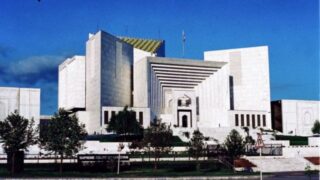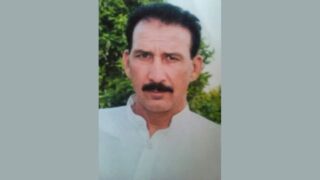The trial of the former Minister of the Interior for homophobia is presented as a clash between Christians and secularists. But it is also an inter-Christian conflict.
by Massimo Introvigne


The criminal trial against Finnish MP and former Minister of Interior Päivi Räsänen and Lutheran Bishop Juhana Pohjola opened in Finland on January 24 and will continue on February 14. It has generated widespread emotion in Finland and throughout the world, with hundreds of media accounts and heated Facebook and Twitter confrontations.
Räsänen is accused of hate speech, a crime that may lead to a jail penalty in Finland, although prosecutors are only seeking a heavy fine in her case. According to the prosecutors, Räsänen showed intolerance of the LGBT community in three separate occasions: in a radio interview, in a booklet (published by Bishop Pohjola’s publishing house), and in a tweet. Räsänen quoted inter alia the Biblical text of Romans 1:27, where we read that “men also abandoned natural relations with women and were inflamed with lust for one another. Men committed shameful acts with other men, and received in themselves the due penalty for their error.” She also called homosexual acts “sinful” and the results of a “negative developmental disorder.”
Christian media have presented the trial as one where prosecutors try to convict the Bible, and a consequence of Finland’s secularism. Other churches have expressed concern, too. In fact, the Catechism of the Catholic Church calls the homosexual inclination “objectively disordered.” While it does not declare the inclination itself as sinful, it states that “Basing itself on Sacred Scripture, which presents homosexual acts as acts of grave depravity, [Catholic] tradition has always declared that homosexual acts are intrinsically disordered. They are contrary to the natural law. They close the sexual act to the gift of life. They do not proceed from a genuine affective and sexual complementarity. Under no circumstances can they be approved” (no. 2357).
While Pope Francis has supplemented this teaching with consistent expressions of love and care for homosexual persons, and calls to tolerance and understanding, the Catechism so far has not been amended (something the Pope could, but did not, do) and remains the normative text of reference for Catholic doctrine. Understandably, some Catholics worry whether reprinting or presenting no. 2357 of their Catechism would be regarded as a criminal act in Finland.
Those who are concerned about religious liberty in the Räsänen case have their good reasons to be concerned. Yet, there is another angle in what is the Räsänen and Pohjola case, one rarely discussed in international media.


The clash between conservative Christianity and the liberal, secular culture prevailing in Finland, which introduced same-sex marriage in 2014, is certainly part of the story. However, another clash also plays a part in the trial. It is a clash between two different versions of Lutheran Christianity. Historically, the Evangelical Lutheran Church of Finland (ELCF) is the church associated with Finnish identity. It is officially recognized as the national church, together with the much smaller Orthodox Church of Finland.
In the late 20th and 21st centuries, the ELCF aligned itself with the liberal positions prevalent in other Protestant mainline churches in Europe: it condones abortion, does not consider homosexual acts as a sin, ordains women, homosexuals, and transgenders as pastors, and while not celebrating same-sex marriages it gives a public blessing to same-sex couplies who have entered a civil marriage.
Again as it happened elsewhere, the most conservative Lutherans were dissatisfied with these changes. In 2013, they walked away of the ELCF and founded a separate denomination called Evangelical Lutheran Mission Diocese of Finland (ELMDC). Although the ELMDC has remained a small organization, the schism was unprecedented. The ELCF reacted by defrocking the bishops and pastors who joined the ELMDC, including Dean Pohjola (later Bishop Pohjola) in 2014, and publicly accusing them of having “broken their ordination vows.”
At stakes are different views of Christianity but also the unique relationship that, although disestablished, the ELCF maintains with the Finnish state. By filing criminal charges against Räsänen and Bishop Pohjola for their conservative view of homosexuality, the prosecutors are protecting a national consensus that, according to polls, strongly supports LGBT rights and same-sex marriage. But they are also protecting the national church against what it perceives as dangerous heresy and schism.









